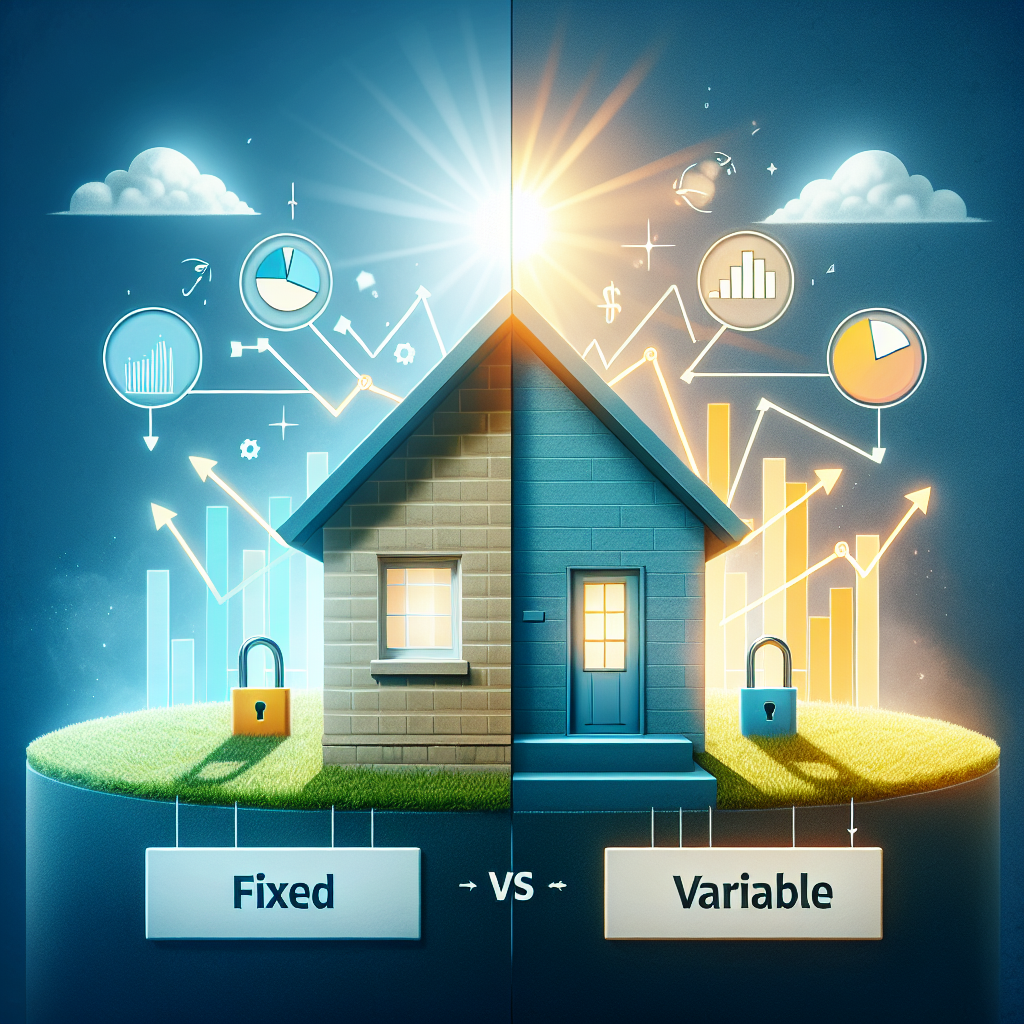When it comes to purchasing a home, one of the most significant financial decisions you’ll make is choosing the right type of mortgage. With a multitude of options available, fixed-rate and variable-rate mortgages are the two most popular choices. Understanding the nuances and implications of these two types can help you make an informed decision tailored to your financial situation and homeownership goals.
Fixed-Rate Mortgages: Stability and Predictability
What Are They?
A fixed-rate mortgage is a loan where the interest rate remains constant throughout the life of the loan. This means your monthly payments remain stable, providing predictability for your budget.
Pros of Fixed-Rate Mortgages
- Consistency: Monthly payments remain the same regardless of interest rate fluctuations, which helps with budgeting.
- Long-Term Planning: Homebuyers can forecast their financial obligations over a fixed-term (usually 15 to 30 years).
- Protection Against Rising Rates: If interest rates rise, your rate stays the same. This can save you significant money over the life of the loan.
Cons of Fixed-Rate Mortgages
- Higher Initial Rates: Fixed-rate mortgages typically start with a higher interest rate compared to variable-rate options.
- Less Flexibility: If interest rates decrease, you won’t benefit unless you refinance your mortgage.
- Potential for Higher Overall Costs: Over a long-term, the total interest paid can be higher compared to a variable-rate mortgage if rates fall significantly.
Variable-Rate Mortgages: Flexibility and Potential Savings
What Are They?
Variable-rate mortgages (also known as adjustable-rate mortgages or ARMs) have interest rates that can change at specified intervals based on market conditions.
Pros of Variable-Rate Mortgages
- Lower Initial Rates: Typically, variable-rate mortgages start with lower interest rates compared to fixed-rate loans, which could lead to lower monthly payments early on.
- Potential for Savings: If interest rates remain stable or decrease, borrowers can save money over the life of the loan.
- Flexibility: Borrowers can benefit from market conditions and may be inclined to pay off their mortgage sooner when rates are low.
Cons of Variable-Rate Mortgages
- Uncertainty: Monthly payments can fluctuate based on market conditions, making budgeting more complex.
- Potential for Increased Payments: If interest rates rise significantly, your monthly payments may increase substantially, impacting your overall financial situation.
- Complex Terms: Some variable mortgages come with caps on how much the interest can increase each adjustment period, which can make them harder to understand.
Factors to Consider in Choosing the Right Mortgage
-
Duration of Stay: Consider how long you plan to stay in your home. If it’s a long-term commitment, a fixed-rate mortgage might be more beneficial. If you anticipate moving within a few years, a variable-rate mortgage might save you money.
-
Risk Tolerance: Reflect on your comfort level with financial risk. If you prefer stability and predictability, a fixed-rate mortgage is likely more suitable. If you can accept occasional fluctuations in your payment amounts, a variable-rate mortgage could be advantageous.
-
Current Economic Environment: Keep an eye on interest rates and economic trends. If rates are low but expected to rise, securing a fixed-rate mortgage could be wise. Conversely, if rates are high but projected to decrease, a variable-rate mortgage might offer better savings.
- Personal Financial Situation: Assess your overall financial health, including income stability and existing debts, before deciding. A clear understanding of your finances will guide you in determining which mortgage type aligns with your goals.
Conclusion
Ultimately, the choice between a fixed and variable mortgage depends on various personal and economic factors. A fixed-rate mortgage offers stability and predictability, making it an attractive choice for those who value budgeting certainty. On the other hand, a variable-rate mortgage may present opportunities for savings and flexibility for those comfortable with market fluctuations.
Consulting with a financial advisor or mortgage expert can further clarify your options and help you make a decision that fits your unique situation. Whichever path you choose, understanding the differences between these mortgage types is key to making a sound financial investment in your future home.













